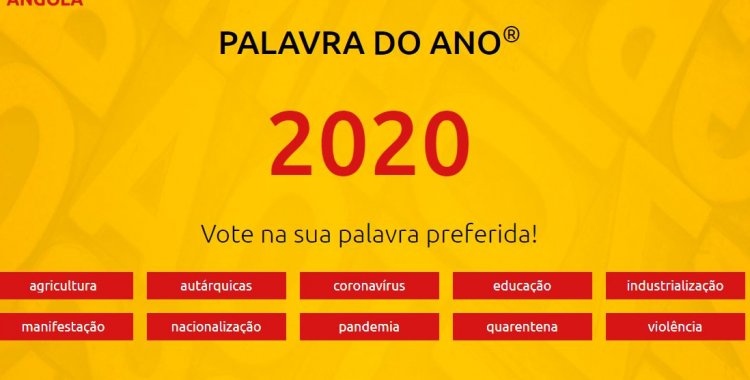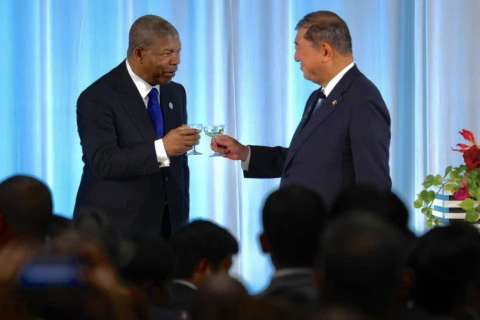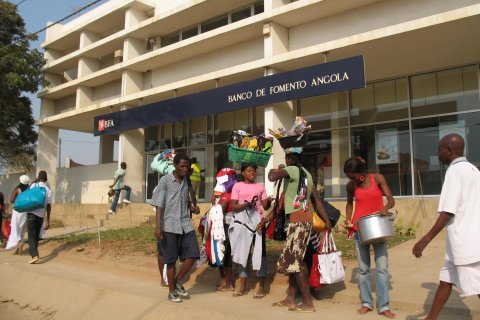The covid-19 and the confinement to which it has been forcing, on a global level, since March, are at the basis of almost all the words chosen by the teams of the Portuguese publishing group, for a final election which, this year, extends simultaneously to the Angolan and Mozambican markets, where Porto Editora has established itself through Plural Editores.
In Angola, besides the pandemic, it was the postponement of local elections, as well as the "social instability", especially during the state of calamity, that imposed words such as "manifestation" and "violence", according to the choice of Porto Editora's team of linguists.
The list proposed by Plural Editores opens with "autárquicas", because of the first local elections in waiting, in the country, continues with "agriculture", because of the search for investment in the sector, also counts with "education", due to constant changes in the system, and "manifestation", due to the increase of protests.
"Nationalization", by the return of several companies to the public sphere, and "violence", because of the "excessive zeal" of the police, especially in the first months of the calamity state, are other proposals, to which are added "coronavirus", "pandemic" and "quarantine", directly related to covid-19.
In Portugal, cases of racism and "ethnic discrimination" are reflected in Porto Editora's list of candidate words, as a way of translating "the great concern" about situations that "jeopardize humanist values".
This year, the Black Lives Matter movement gained an international dimension after the death of George Floyd, in Minneapolis, in the United States, when he was arrested by a police officer, exactly two months before the murder of the Portuguese actor Bruno Candé, shot dead in a Moscavide street, in Lisbon.
The list put to a vote 'online' in Portugal includes the terms 'confinement', 'covid-19', 'discrimination', 'digitalization', 'infodemia', 'pandemic', 'saudade', 'homeless', 'telescola' and 'zaragatoa'.
"Digitization" is the result of the priorities that emerged in the context of the pandemic, in all sectors of society; "infodemia" is a neologism that combines "'information' and 'epidemic'"; "telescola" and "nostalgia" have returned to the forefront, in the scenario of confinement.
The loss of income, in the current crisis, to "assume calamity contours", in several sectors, such as culture, has put the "growing social problem" of the "homeless" back on the agenda, reflected in the choice.
In Mozambique, the situation in Cabo Delgado, in the north of the country, led to the proposal of the word "attacks". The armed violence in this region has lasted for three years and is causing a humanitarian crisis with about 2000 deaths, and more than half a million displaced people, without housing or food, mainly concentrated in the area of the provincial capital, Pemba.
Plural proposes "attacks" and "refugees" because of the terrorist actions in Cabo Delgado.
To these joins "coronavirus", "distancing", "emergency", "isolation", "mask" and "pandemic", in a direct relationship with covid-19. "Unemployment" emerges as a consequence of the health crisis, on the basis of business failure and job destruction. "Mahindra", a brand of cars that has become synonymous with police, is another proposed term.
Porto Editora began the choice of the Word of the Year in Portugal in 2009 and in 2016 in Angola and Mozambique, through Plural Editores.
Last year, the vote for Angola chose "VAT". "Violence" was the one chosen in Portugal and Mozambique was "reconciliation".
If you want to vote on the word of the year for Angola you can do it until 00h00 on the 31st of this month, at the address www.palavradoano.co.ao.
The results will be announced on January 4th.







